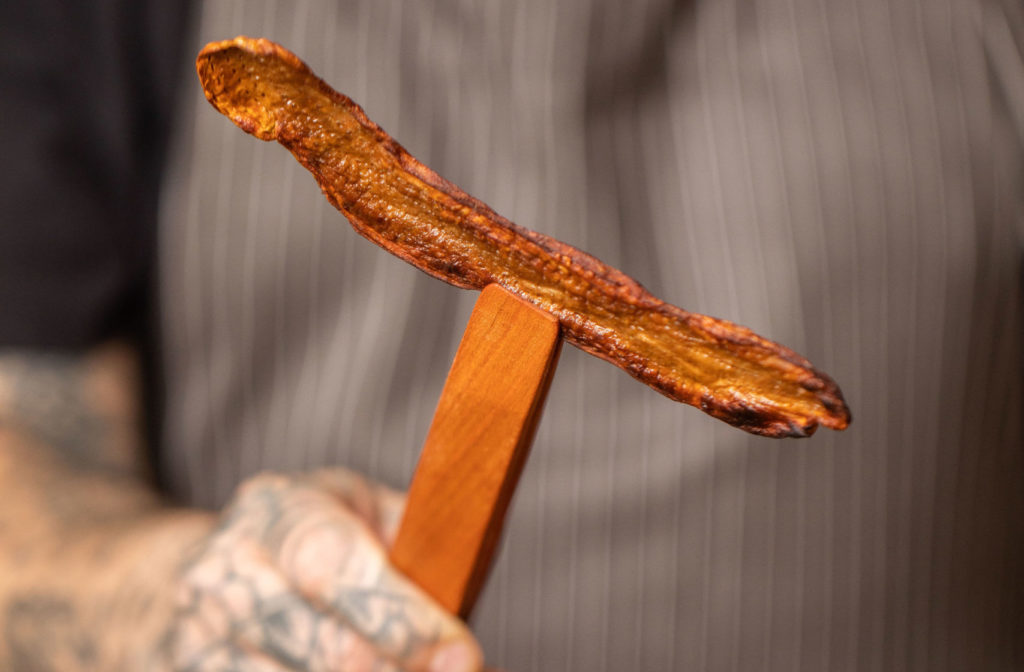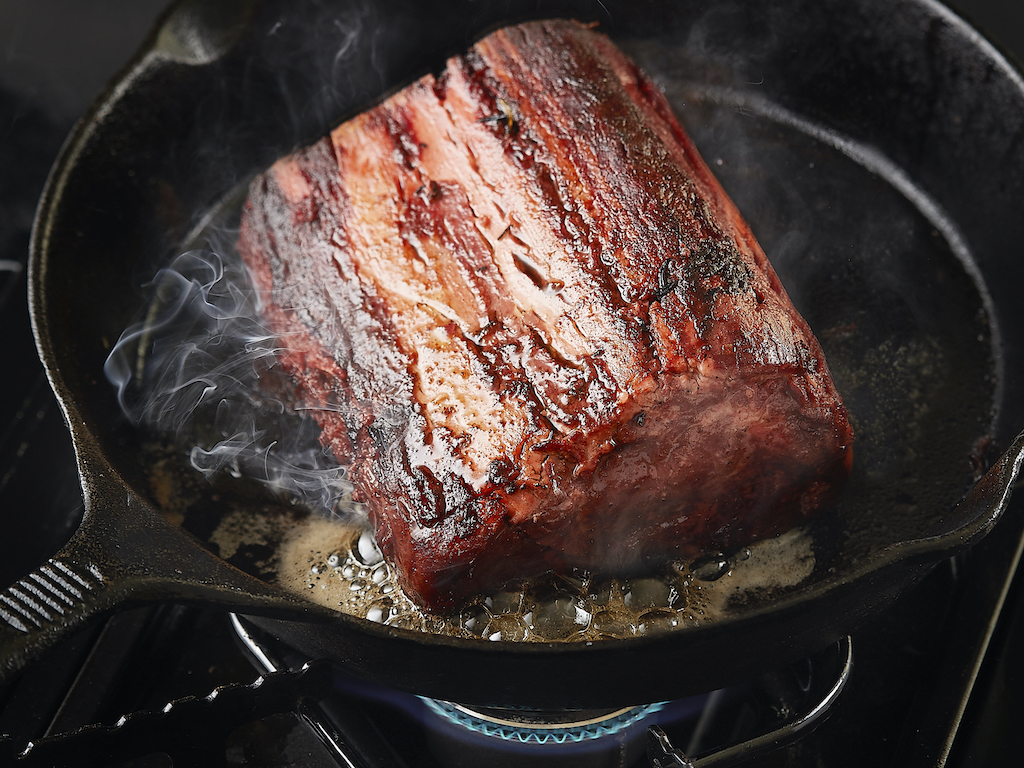Food Experts Launch AI & Machine Learning Project to Transform Plant-Based Meat Texture
4 Mins Read
Sustainability non-profit Food System Innovations (FSI) has teamed up with artificial intelligence (AI) and machine learning expert Noa Weiss to unveil GreenProtein AI, a project tapping next-gen tech to optimise the extrusion and texture of plant-based meat.
Last year, a survey by vegan certification body by V-Label found that plant-based meat’s texture is as important as conventional alternatives for 75% of consumers, but only about 60% were actually satisfied with alt-meat’s texture. The findings complement multiple reports that place taste and texture at the top of consumer priorities for plant-based meat.
A new way to process plant-based meat
GreenProtein AI’s founders say vegan meat brands have faced “unique obstacles concerning texture optimisation”. A major reason behind that are the high costs attached to high-moisture extrusion (HME) – one of the main techniques of transforming plant-based ingredient into fibrous meat, alongside low-moisture extrusion (which is used for dried applications like textured vegetable protein) and shear-cell tech.
The Institute of Food Technology explains that during HME, proteins undergo thermal and mechanical stresses due to the heating of the barrel and shearing of the screws. This leads to a change in protein structure, and those can be aligned to form a protein network by attaching a cooling die at the end of the extruder. Through this method, a range of textural characteristics can be achieved for the final product.
But while HME is the most widely used process for plant-based meat production, it’s also a highly expensive tech with a larger carbon footprint. This is where GreenProtein AI comes in. “GreenProtein AI focuses on utilising machine learning algorithms to dissect the intricacies of the extrusion process,” project lead Weiss told Green Queen. “Our aim is to refine key parameters such as temperature, pressure and feed rate, effectively transforming the so-called ‘black box’ of extrusion into an optimised and more transparent system. This approach promises to both reduce costs and elevate the texture quality of plant-based meats.”
She added: “Machine learning algorithms are essential for parsing through large data sets to identify patterns that can improve the extrusion process. Those models are the core of our offering. AI methodologies, beyond machine learning, are then useful for integrating these insights into a broader decision-making framework.”
The project aims to collaborate with extrusion facilities and plant-based meat manufacturers, providing targeted insights and solutions to enable a more predictable and efficient production process. GreenProtein AI says this will help enhance the quality and sustainability of alt-meat, as well as bring it closer to price parity with conventional meat.
How can it do so? “Our AI models aim to simulate the extrusion process, allowing manufacturers to preview potential outcomes and narrow the search field for extrusion trials,” explained Weiss. “By planning physical trials more precisely, we can minimise the need for these expensive tests, thereby reducing the high costs typically associated with extrusion.” She added that GreenProtein AI also focuses on low-moisture extrusion.
FSI’s managing director, Max Elder, was also the founder of vegan chicken startup Nowadays, which ceased operations last month. “Nowadays would have benefitted greatly from the predictive models GreenProtein AI is building,” he said.

The rise of AI in veganism
“GreenProtein AI demonstrates the incredible power of AI to address real-world industry challenges. We are putting technology to work to remove barriers, allowing the alternative protein industry to achieve its full potential,” Weiss said in a statement. She confirmed to Green Queen that the project is already in talks with several plant-based meat companies for collaboration.
This underlines the growing influence of AI in the vegan industry. Latin American food tech brand NotCo has been using AI and machine learning for years to find the best plant-based alternatives for animal products. The patented AI tech has a name, Giuseppe, and is the brains behind the company’s alt-milks, mayo and burgers. Similarly, Singapore’s Howw Foods uses AI to make Hegg, its vegan powdered egg product.
Many producers have also collaborated with AI companies to develop plant-based products. Bel Foods – the French cheese giant behind the ultra-popular Babybel – has partnered with California’s Climax Foods to make vegan products, while industry giant Danone is working with Californian AI firm Brightseed to discover hidden nutrients and compounds in plant crops.
Similarly, mycelium meat producer Meati teamed up with AI company PIPA to accelerate and expand its understanding of the health and nutrition benefits of its nutrient-rich products.
AI has also been used as a marketing tool. US startup Pleese Foods unveiled a campaign earlier this month, where it employed AI to generate whimsical imagery of cheese as a flourishing crop and being grown on trees.



